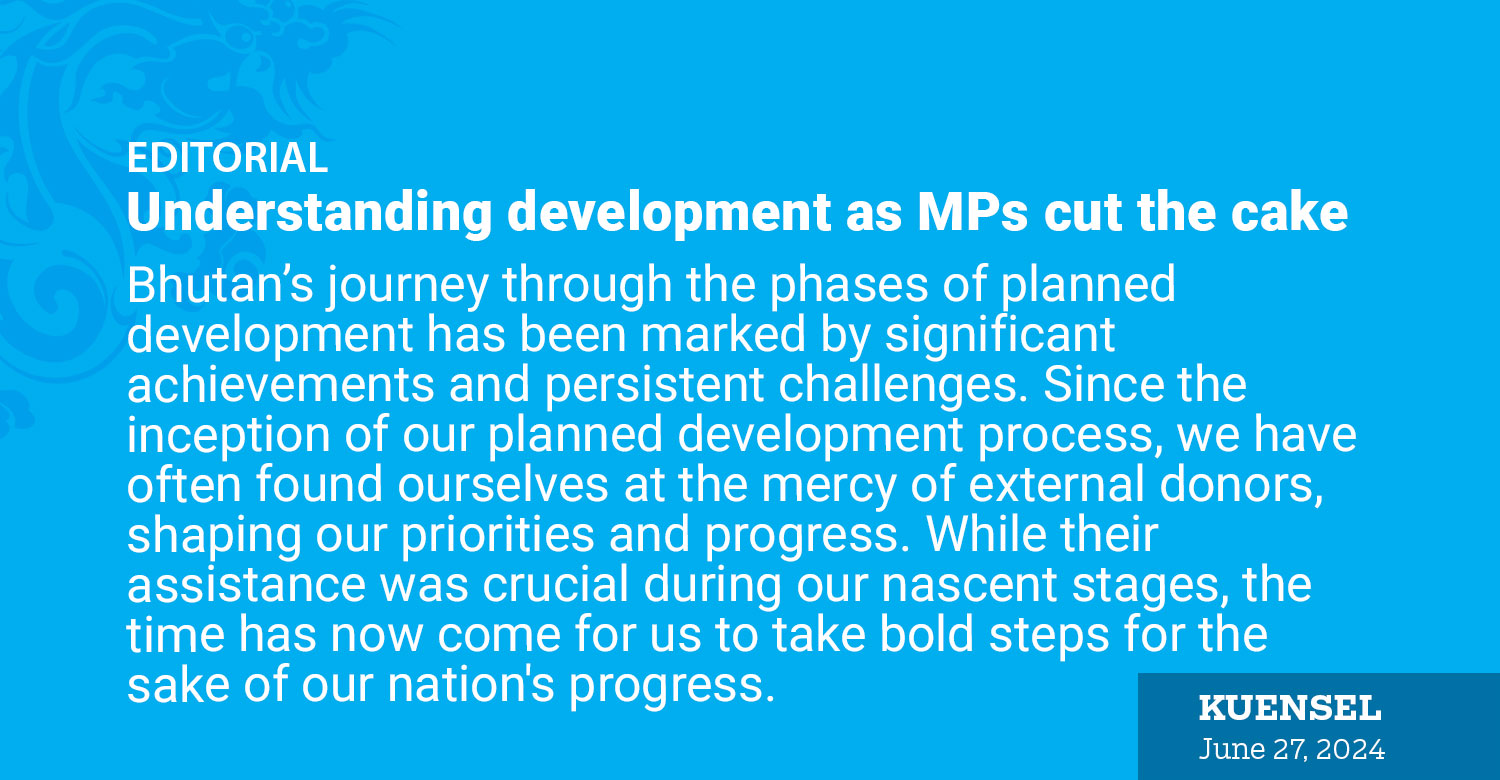Bhutan’s journey through the phases of planned development has been marked by significant achievements and persistent challenges. Since the inception of our planned development process, we have often found ourselves at the mercy of external donors, shaping our priorities and progress. While their assistance was crucial during our nascent stages, the time has now come for us to take bold steps for the sake of our nation’s progress.
Our primary challenge lies in our rush to meet externally set targets, often neglecting the foundational aspects crucial for sustainable development.
One of the most glaring issues is our acute shortage of essential professionals, such as teachers and doctors. Despite numerous development plans and foreign aid, we are still grappling with a scarcity of qualified personnel in these critical sectors. This shortage undermines our education and healthcare systems, leading to long-term repercussions on our society’s well-being and growth.
Why is it that a small nation like ours continues to face such basic shortages?
Tourism, considered one of our largest revenue earners, remains an unstable sector. While we boast breathtaking landscapes and a unique cultural heritage, we have yet to establish a robust, sustainable tourism model. Seasonal fluctuations and external dependencies have left the sector vulnerable, raising questions about our strategic planning and execution—interesting dreams and pronouncements keep following.
But, really, where are we going?
The quality of education continues to be a subject of intense debate. Despite various reforms and initiatives, we are yet to see a significant improvement in educational outcomes. This disconnect between policy and practice, coupled with inadequate teacher training and resources, has stymied progress.
Bhutan’s future hinges on the education of our children, yet we seem to be stumbling in providing a solid foundation for them.
Our infrastructure, particularly roads, presents another paradox. We import cars in significant numbers, yet our road conditions remain subpar. Poorly maintained and inadequately planned roads not only hinder transportation but also reflect a deeper issue in our planning process. How can we claim to progress when the basics of infrastructure are not addressed adequately?
These issues stem from a deeper problem: our propensity to focus on the superficial rather than the substantive. We are often more concerned with the appearance of progress rather than the reality of it.
True development is not about grand projects or meeting donor expectations but about getting the basics right.
Investing in basic infrastructure, ensuring quality education, providing robust healthcare, and building a sustainable tourism model are the cornerstones of genuine development.
It is time we shifted our focus from short-term gains to long-term sustainability. We must prioritise the essentials that form the backbone of our society and economy.


